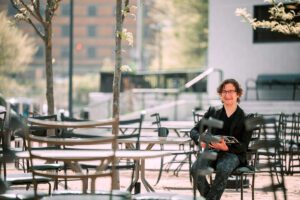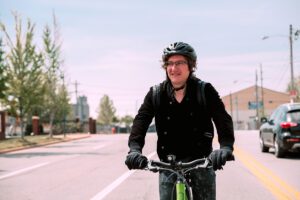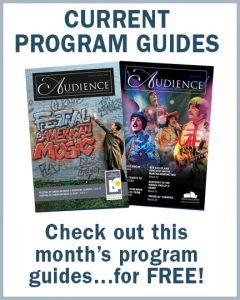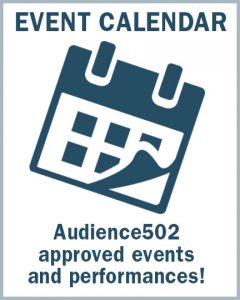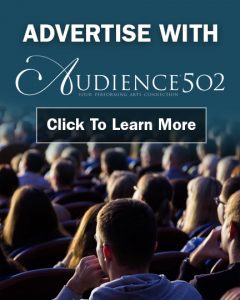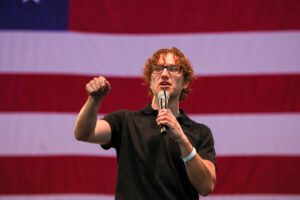 The Louisville Orchestra has been a staple in the arts community since Robert Whitney founded the company in 1937, when Charles Farnsley served as mayor of Louisville. Farnsley led the orchestra as its music director for 30 years, until 1967, and then turned the reins over to Jorge Mester from 1967 to 1979. Farnsley returned in 2006 until 2014, after several other talented music directors came and went.
The Louisville Orchestra has been a staple in the arts community since Robert Whitney founded the company in 1937, when Charles Farnsley served as mayor of Louisville. Farnsley led the orchestra as its music director for 30 years, until 1967, and then turned the reins over to Jorge Mester from 1967 to 1979. Farnsley returned in 2006 until 2014, after several other talented music directors came and went.
In 2014, the company introduced the current music director, Teddy Abrams who brought new and exciting energy to LO and the city of Louisville. He is an inspiration to many, a thought leader for the arts community as a whole, and the city is lucky to have him. We are excited to celebrate his work as he embarks on his fifth season with the Louisville Orchestra, and one that is likely to be the most anticipated ever.
Audience Magazine publisher, G. Douglas Dreisbach, caught up with Abrams to learn more about his background, his interest in music and the community, and what he is excited about for the upcoming season.
Teddy Abrams Interview – Part 1
Teddy Abrams Interview – Part 2
G. Douglas Dreisbach: Your bio describes you as a tireless advocate of the power of music. What does that mean?
Teddy Abrams: My belief is that music is an essential part of how I think a community or society can find commonality, and the power of music can cut through different backgrounds and break down barriers that people have created for themselves, and it cannot be underestimated. A lot of times, we tend to fall into these nice, comfortable little paths for our art forms throughout the life cycle of an artist or an arts institution, but my interest is in going way beyond the ley lines that we’ve created for ourselves, whether we have thought about it that way or not. We always tend to just do what’s comfortable, or at least do what seems most natural.
But my interest in music is in using the language to expand and to build society, as opposed to creating the narrow pathways that seem like they’re just right in front of ourselves.
GDD: You started playing music at a relatively young age and were one of the youngest students accepted into the Curtis Institute of Music, as well as the Aspen Music Festival and many other accomplishments. Who and what were some of your early musical influences growing up, and how have those contributed to your work?
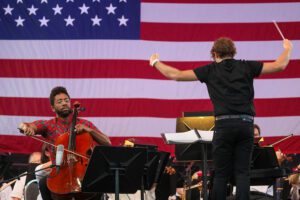 TA: Like any musician, you’re basically made up of all the musical experiences that you have with a weighted component of the early memories and the early mentors, especially in the classical music world, where mentorship is so critical from an early age. You are kind of an amalgam and a composite of those various experiences, and especially the people that extend themselves early on to offer guidance and counsel, and that training has a lasting impact on how you see the musical world, the artistic landscape, through the lens of a classical musician.
TA: Like any musician, you’re basically made up of all the musical experiences that you have with a weighted component of the early memories and the early mentors, especially in the classical music world, where mentorship is so critical from an early age. You are kind of an amalgam and a composite of those various experiences, and especially the people that extend themselves early on to offer guidance and counsel, and that training has a lasting impact on how you see the musical world, the artistic landscape, through the lens of a classical musician.
Of course, every musician has influences; some however may never actually know what they are. They may be purely artistic and musical, and they may not be personal. But from the lens of a classical musician, you must have those personal relationships. It’s not something you can avoid. The language and the techniques require, really demand, that you have people in your life that train you, and usually on a one-on-one basis. It’s one of the last, not just art forms, but any kind of genre or vocation that requires that kind of one-on-one master-and-pupil relationship, which seems kind of archaic in a lot of ways these days, but in music it’s preserved.
I was very fortunate to have a number of people, early on, that went so far above and beyond even the expectations of that kind of teacher-student relationship, and they really recognized what I was either capable of, or what I wanted to do with music, and I generally had kind of a capacious understanding of what a life in music might mean for me. I wanted to conduct from a very early age, — surprisingly early. Most people decide they might want to conduct much later in life. That’s not something you’d really expect from a kid. And I was nine years old when I decided this was what I wanted to do. And as I said, you can think that that’s what you want to do all you want, but you have to have people in your life that guide you along that path.
I had teachers on the piano and the clarinet, musicianship overall, and also as a conductor and composer — many different teachers — that all contributed to who I am today by extending themselves with their own generosity. And that’s something that I think about a lot as a musician and as an artist. That’s the kind of work that you always have to go above and beyond and become a person that offers whatever they have to the world, as much as you can. That’s the underlying motivation as an artist for me. It’s that sense of going above and beyond and doing more, giving more of yourself, than is expected. The expectations are just the baseline. So, it was so important to have those influences in my life that lived that very model of behavior that I try and live today.
GDD: What instruments do you play, and do you prefer any over another?
TA: I don’t really prefer any instrument over the other. They’re all different. Having a rich musical life is about finding the interests that you have in expressing yourself and living as an artist. And for me, that’s led to a very musical life. I know many people that are highly fulfilled by playing just a single instrument and doing it in a kind of monastic and disciplined excellence, and that’s their musical worldview.
 But for me, it’s always been about having different elements of musicianship, not only different instruments and different disciplines within music, like composing, conducting, and performing, but also different genres. That’s always been something that’s very important to me. A classical technique, a system for learning, say, the violin or the trumpet or the piano, through the lens of classical music, gives you variety, and gives you scope, in terms of how you approach your musicianship.
But for me, it’s always been about having different elements of musicianship, not only different instruments and different disciplines within music, like composing, conducting, and performing, but also different genres. That’s always been something that’s very important to me. A classical technique, a system for learning, say, the violin or the trumpet or the piano, through the lens of classical music, gives you variety, and gives you scope, in terms of how you approach your musicianship.
And what I mean by that is that a lot of people associate the technique of playing these instruments with the specific repertoire, like you learn to play the piano a certain way — that lets you play Mozart and Beethoven and Brahms. But from my perspective, learning the piano a certain way actually opens the world up to use that technique to play lots of different styles of music that I love, and to try and do that with respect, and real understanding of where those styles come from, so that you’re not just dabbling, but trying to really immerse yourself in it.
I had an early love of improvisation, which led me to want to play jazz, and then ultimately rock, and folk music, and bluegrass, and klezmer, and then even hip-hop, and genres you might not expect so-called classical musicians to espouse or to really love.
And so, my musical interests are varied, both in how I perform, but also with the genres that I play.
GDD: Do you have any kind of creative process when you write a composition for a new project? Or is it different every time?
TA: The creative process has to reflect what you’re trying to accomplish, so it really depends on the project, and it depends on the kind of musical work that you’re trying to create. The process for creating, say, a solo piano work or an electronica composition or a piece of musical theater will be different, depending on the affect and the ultimate life that the piece of music is going to have.
Almost all my work begins with the same improvisatory technique. Using improvisation to let yourself speak naturally through music is very important to me. It’s what allows the sentences to flow from one part of the paragraph to the next, and the paragraphs to knit together into a chapter, in a natural way. I find that a lot of times, abstracting that process and trying to just create music in kind of a vacuum or by selecting those that seem right at the time, but not connected to an actual linguistic pronunciation of musical art, does not yield a natural result overall.
And every composer has a different method. Some people can create very naturally-flowing music purely at a computer. But for me, it almost always begins at a piano, where I’m just purely improvising and trying to create music as if I was actually speaking, so that’s my process from the beginning. But it varies, depending on what we’re really trying to create.
GDD: Do you have any superstitions or pre-concert routines? Do you try to stick to the same routine on performance days?
TA: Honestly, by this point, I’ve done so many weird performances and played in the most unusual settings — a lot of my life has been about taking music and removing it from its most traditional settings. And what that’s done is changed my perspective on what performance really is, and also the way you mentally prepare for it. It used to be, when I was only doing more traditional classical concerts in a concert hall, a very formal kind of procession, where you enter the stage and bow. That was all I knew. It was much more traumatic and anxiety-inducing because that really is not a format that yields a comfort for the performers, unless you really have nerves of absolute steel, and you’re like one of those rock-climbers that they don’t get an adrenaline rush when they’re climbing up the base of a mountain without ropes and tools.
But unless you’re like that, it’s really uncomfortable for everybody, no matter how talented you are, and no matter how prepared you are, getting that kind of anxiety. When I started performing in all these weird settings and places, especially this thing I did back when I lived in Miami, called Random Acts of Culture — it was a Knight Foundation program that they asked me to help design. They had this idea that they would have musicians go into places where no one expected music or dance or whatever kind of art form you might be experiencing at the time, and you would go in and surprise people with that art. It wasn’t meant to be like a flash mob. It wasn’t aggressive at all. It was just to give people a little artistic experience and bring that into their lives in an unexpected way to see what that might do.
I was asked to do those kind of performances all around the country, and to do as many as we possibly could on tours with the group that I had, and when you end up trying to present these surprise concerts at a gas station or bursting into a classroom at a university or things like this, hospitals and airports and — you name it, we probably played there — pumpkin patches and just on street corners outside of our van, where we had a little sound system hooked up — it really loosens you up, in terms of what it means to perform, and it takes you outside of this very formal experience of trying to play really well and much more into the realm of, “Hey, we’re trying to engage people here. We’re trying to really focus on the audience and get them to be excited about what we’re doing, as opposed to just making it about your performance,” which is a rather limited experience.
GDD: We are all excited about the upcoming season, returning to live, in-person performances and concerts. Last year, the Louisville Orchestra shifted to the digital and video streaming experience for your patrons, when many orchestras around the world just kind of sat back for things to pass. You did the opposite and had a season of new compositions and new programs for the educational series including around 200 videos. What did you learn from last season, and what are some of your take-aways?
TA: Last season was obviously an immense challenge, as it was for anybody in the event world. We witnessed a pretty dramatic range of responses to what happened from our different various arts organizations around the world. It’s really quite fascinating because you couldn’t have predicted how people would have responded, based on their previous work. And you saw a lot of folks run scared, people that had been quite daring in previous seasons, actually being incredibly conservative during the pandemic year, and others that maybe you wouldn’t have expected them to really do something quite exceptional use this as an opportunity to change and to try things and to find success, and in perhaps a new way, redefining what success might be.
My No. 1 goal was to keep the music coming out to the city, to continue to provide important bonding and meaningful, passionate experiences for people in a year when so much loss was felt by everybody. It was just a sense of loss here, of loss there. Everywhere you looked, there was something that was either missing, or something had been taken away.
That No. 1 goal of giving people something — and so, rather than a loss, it felt like people were getting a gift. And then, my No. 2 goal, which was just as important, was to keep the entire organization healthy and to make sure that every single person in the Louisville Orchestra — staff, administration, and of course, musicians, — were all employed.
That was very, very important to me, because like a sports team, or any of a group of people that worked together in a very intimate way, you can’t just sit out a year and expect to be able to play at the same level in 12 months, 15 months, whatever it might be. It’s not possible. You’ll lose so much of just the mental — the kind of psychic connections that make an orchestra sound great. It’s not something that can easily be restored. It’s not a matter of just flipping a switch and saying, “OK, well, now we’re an orchestra again.”
So, for me, the idea of keeping everybody employed, keeping everybody working, keeping the music going — it was both external and internal. We had loss in so many different forms — loss from COVID, but also the loss of innocence and the loss of a sense of community cohesion with the equity side and the health side, because we were hit very, very hard. So, there was that external need to supply a gift that music provides. But the internal need to keep the orchestra alive was so critically important, even if that wasn’t something that people saw.
GDD: What do you think that first performance is going to be like in October, when the lights go down and you’re ready to play the first note?
TA: We’ve already been playing in-person concerts now. We just had our fourth one, actually, on July 4th, out on the waterfront. And so, we’ve already regained a sense of what it’s like to play for a live audience, which, of course, is different when you’re doing large-scale outside performances for tens of thousands of people, versus the experience at Whitney Hall.
We are really excited to get back to the hall, but we’ve already had this kind of spiritual reawakening, you might say, of playing for people in person again, which is — I mean, look, the virtual space is extraordinary. I try and give credit to the opportunity to play music virtually because it’s very easy to just dismiss it and say, “Oh, it’s not the same.” Yeah, but it’s an amazing, amazing gift. It’s an incredible platform that’s been given to us. And even when it feels like we’re so tired of screens, we’re so exhausted by digital communication, and rightly so — that’s a very valid complaint, and I think there are a lot of negative elements to the digital world that we’re obviously completely intertwined with — yes, you can acknowledge that, but also to be grateful to have had the opportunity to do something that even just a decade ago would have been absolutely impossible.
So, I try to give a lot of credit to that and not just dismiss it. And everybody’s saying, “Oh, we missed live concerts.” Yeah, but let’s acknowledge the gift that we had, that we have an orchestra because of those digital opportunities. And that is something that we need to consider when we move forward, because a lot of people were reached in ways that they would never have been reached in a normal season because people weren’t thinking about accessibility, and they weren’t thinking about the audiences that perhaps, even in normal years, would not have been able to experience their music-making. So, it’s going to be an important part of how all arts organizations move forward.
But yes, we are musicians that are trained to play for people. We’re not like a TV orchestra that just sits there and plays for the cameras and nothing more. We are meant to play for human beings, live in the room. And there is an energy and just an experience that’s totally different for the performers and for — well, of course, for the audience it’s a given. But for the performers, having people there really changes the dynamic, changes the metrics, and that’s something that we lost, because a lot of times, when you end a piece in a purely digital concert, there’s nobody in the audience. You kind of just stop, and you look around at everybody, and you’re like, “Well, I think that went well,” but you don’t get that response of human beings affirming that it was a performance that landed. And so, that’s something that we really miss.
And my hope is that, when we get back to the live concerts, that we treat the concert hall and the live musical experience — whether it’s a huge hall or a tiny living room show or a giant outdoor festival — that we treat that all with a sort of reverence that I think we have lost because people were so entitled. And I’m not saying entitled in a bad way. We just felt entitled to have live music any time we wanted it, or events any time we wanted it, or — how many amazing outdoor music festivals does Louisville have? — incredible, rich opportunity.
This is a chance to be really mindful and cognizant and conscientious about the gifts that we have in our world, and not take them for granted, and not just go right back to that space of feeling like, “Well, yeah, that’s something that we all just deserve.” We should be protective and caring and aware of the fragility of those experiences. So, that’s the way we’re going to try and continue. And it’s hard to because it’s not the default mindset, once we get back into a routine, but my hope is that we can preserve something of that, so that we never forget what this year meant, both in its opportunities, but also in its deep tragedy.
GDD: Do you see some of the opportunity lying in continuing the video distribution of your performances?
TA: I do. I think that there will be awesome opportunities to do that. But my thinking is that our approach will be geared towards making a richer musical experience around the live concerts, so rather than just having concert placement videos — although sometimes I think we will continue to do that — creating a more sustained relationship with audiences is actually what’s really important. And the video space allows you to create ties to the members of the orchestra in a way that you just can’t get in a two-hour concert. So, this is an opportunity for people to really get to know the musicians individually, and to let the musicians have programming opportunities.
That was something that we found very valuable this last year, that a lot of the videos that were produced were completely musician-driven and musician-led, musician-programmed. One of the things that we decided early on is that we wanted to have a series of video content that the musicians would program themselves. It would be completely programmed and recorded in tandem with the larger orchestra concerts that, of course, I’ve mostly programmed. And the whole idea was that we would set the themes for the big eight concerts that we had. I think we had like 11 full-orchestra concerts throughout the year, which is actually more than we do in the classics series, so it was a lot of content. And then we asked the musicians to program chamber music or small ensemble works based on the themes of those large concerts.
If we were doing a concert that featured the music of, say, John Adams and Mozart back to back, those chambers have been an inspiration for musicians to choose their own music that they wanted to record. Sometimes it’s string quartets or trios or solo pieces, whatever it was. In a normal year, they don’t have that opportunity to program that type of stuff. And it really showed off their personality and their own artistic profile, and that’s something I want to continue, and that’s where the digital space can really enhance some relationships in the orchestra, as opposed to replace the live concert experience.
GDD: We often hear the Louisville Orchestra referred to as “your Louisville Orchestra” from many perspectives. Why is it important to emphasize the “your” reference when mentioning the Louisville Orchestra?
TA: Well, I always use that phrase, “YOUR Louisville Orchestra,” versus “the Louisville Orchestra,” because the orchestra belongs to the people. I really believe that. And certainly, there are many musical institutions that don’t have that same requirement, in my view, or underlying mission, to belong to the community. You can have a chamber orchestra or something like that that focuses just on new music, or you could have a wind ensemble that’s really all about doing the wind band music of the Napoleonic era.
That’s legitimate, but when you have the name of the city in your orchestra, and a history that’s intertwined with the fate of the community, your responsibility to the people of your town changes dramatically. I think it’s a very, very different approach to think of yourself as just an orchestra, versus somebody’s orchestra, the Louisville community’s orchestra.
And I always do that, because I want people to feel ownership over the experience. Whenever they come to the orchestra, I don’t want them to feel like they’re guests. They’re not our guests. It is their experience. They own that concert. They own that experience, and it’s theirs.
And I think one of the big barriers to going to see orchestral performances or classical music in general, even though we don’t really call it classical music anymore because it’s a misnomer, and it’s also just not a very helpful term — but one of the big barriers is that people feel like the experience is not something that they are comfortable with. It’s not theirs. It’s not their house.
You start by redefining language, honestly. Yes, you have to follow through with incredibly creative programming to help make it feel like everybody owns the experience, but you start with language. And if you tell people it’s theirs, and when you say, “Hey, when you’re here at this concert, this is your house. This is your place,” it’s just the first level of rewiring the way people see what an orchestra can be, and taking it from being this elitist “other” kind of institution, and making it the people’s orchestra.
GDD: It was really inspiring to see the community rally together last year, and everything we went through with the pandemic and civil situations. But through it all, your name and the Louisville Orchestra name kept coming up, whether it was the musicians doing their individual things, or parking lot pop-up concerts you were involved with, your composition with Jecorey Arthur and Jim James with My Morning Jacket. There always seems like there are great things that come from Teddy. When you have an idea, how do you take it from a thought process to execution? Or does it just kind of organically happen?
TA: The challenge is that we have way more ideas than we have either time or money to produce. And one of the hardest things is to focus your resources, or focus the people and also obviously the money and funding that you have, on the things that will have the highest impact. One of the real issues with any arts organization is that you’re dealing with lots of different time frames. You’re dealing with programming that week, which — when you’re putting on a show that week, so much of your energy is just wrapped up into trying to put on a great show. But then you’re also trying to think about the arc of the season. Is that season really delivering the balance of artistic projects and community work that you believe in? And then, you’re also trying to focus on the long-term strategy.
And in a lot of other organizations, and many corporate structures, you would split that up. You wouldn’t have the same people trying to do three different timelines, the weekly, the quarterly or yearly, and then long-term strategy. You’d have people specifically allocated to those things. And in orchestra specifically, and I think most arts institutions, the same people are working on all three different time scales, which is one of the hardest things.
So, for instance, if we have this idea to transform the city by bringing composers into Louisville and giving them an opportunity to create work that redefines the relationships between people, just as an example — that’s something we’re working on — that may take three years to develop and even just start. And at the same time, we may be producing a fully-staged work the next week. And to be able to balance those two things is extremely tough.
One of the most important things that we can do is to align the organization, so that everybody knows what we’re trying to accomplish, what the real goals are, because I think a lot of times, people just move right into trying to get stuff done. They haven’t really talked about what your values are and what you’re trying to actually do for the community.
We spent a lot of time, especially last year or during the pandemic, discussing that because we had this huge opportunity to reset thinking and mentalities. And we talked a lot about what it is we’re really trying to accomplish and where we’re trying to go. And a lot of that has to do with taking the orchestra from a performing institution and re-imagining ourselves as a civic service, so that it really redefines the essential relationship of the orchestra, not just to your audience in any show — that’s not your audience. Your audience is ultimately everyone.
We’ve talked about that for a while, but we haven’t been so clear until now of what we’re trying to do. Our work now, whether it’s actual shows or projects, is all about strengthening the city itself, so that we are a civic service.
That’s a long way of basically saying that, when we choose which projects and concepts we’re trying to work with, it’s filtered through that definition of us as an essential city service, rather than just, “Hey, what do we feel like would be a fun show to do?” That’s not a great starting place. Yes, later on, you have to say, “Is this going to be a fun project? Is this going to be a fun show? Is this going to be a fun new commission to work?” But first, start by saying, “We’re defining ourselves as much of an essential city service as we can be.”
GDD: In closing, what would your pitch be to both long-time patrons of the Louisville Orchestra, as well as some of the first-time attendees this season? What are some of your goals that they experience this year, and what can they look forward to about this special upcoming season?
TA: Well, this ’21-’22 season is honestly the most exciting season we’ve put on. It really is — it’s pretty outrageous. We’ve really invested in programming, and the balance between old and new is spot-on, if I do say so myself. So, you’ve got music and repertoire for people that love Schubert and love Berlioz. They’re going to hear that and hopefully hear it played in a way that makes them rediscover and re-love that music. But also, there’s a huge emphasis on creating new music.
And our audiences are the best audiences in the world. They are the most open, engaged audiences. They’re people that come in — they are excited to hear something new. They are excited to have their minds blown or expanded. And a lot of audiences around the world are not.
So, this year, we’re really delivering. There are so many original works that are going to be premiered in a huge range. We’re starting off the season with a set of commissions, songs, and orchestral compositions that are from all local musicians, reflecting on what the last year and a half will have meant to them. And some will be celebrations, and others will be memorials, but there’s going to be a great range.
That’s the start of the season, seven new works. And then, throughout the year, it’s everything from basically a Cuban dance band concerto during our Festival of Latin American Music, to a new piano concerto that I wrote, to this crazy cello concerto at the end of the season that deals with automation and involves an instrument that’s being made specifically for the performance that’s paired with the cello.
There is so much artistic, overflowing creativity that we wanted to give to the community because after a year like this, people deserve something that really, really expands and just inspires their minds and their souls. So we kind of went all-out.
For more information and tickets for the Louisville Orchestra, visit LouisvilleOrchestra.org

